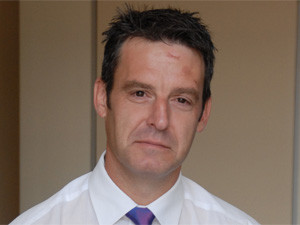
As SA's two largest cellphone operators enter their third decade today, they face a host of challenges, including revenue pressure as users shift to data, increased competition, and a saturated market.
Today marks 20 years since limited mobile operations launched after networks went live at midnight on 31 March, according to information on Telkom's Web site. Full commercial operation started on 1 June, and Vodacom and MTN shared the market equally as the only two operators.
"The local launch of cellular telephony was among the fastest, anywhere in the world. In no other country has a cellular telephone system begun operation with 10 000 subscribers on the first day," says Telkom's history portal.
Alan Knott-Craig, Vodacom's first CEO and now head of Cell C, has said the launch was "brought forward to support the Independent Electoral Commission in managing the first democratic elections in the history of our country".
Today also marks the start of a new era for operators, as lower mobile termination rates - although invalid - will come into effect for a period of six months, while the Independent Communications Authority of SA (ICASA) ponders new tariffs.
Rates for Vodacom and MTN will drop to 20c per minute - half the current MTR rate - while Cell C and Telkom Mobile will be able to charge the two larger players more than double that (44c per minute) to terminate calls on their network.
Knott-Craig has said today "could prove to be almost as significant as 1 April 1994 - both pivotal moments in the history of our industry and our country".
Heady growth
Back in 1994, Vodacom - now SA's largest operator with 31 million subscribers - expected the entire local cellular market to hit 500 000 subscribers in a decade, reflected its second CEO Pieter Uys a few years ago. The company anticipated signing up half of these users.

Currently, according to ITWeb's calculations, there are almost 70 million active SIM cards in circulation in the country. Vodacom's stake is followed by that of MTN, with 25.7 million customers, then Cell C (which is approaching 12 million users), Telkom Mobile at 1.6 million subscribers, and finally Virgin Mobile SA, which had 400 000 subscribers the last time it revealed numbers.
However, with mobile penetration now at an estimated 144%, it is clear the heady growth days are long over for the mobile operators. They now face challenges, including increased competition, voice revenue pressure, and the need to keep investing in networks.
MTN's latest results, for the year to December, show its top line only gained 3.1%, when currency gains are stripped out, to R136.5 billion. Vodacom's annual results, for the year to March 2013, show its turnover increased a mere 2.9%, to R59 billion, also stripping out foreign exchange movements.
Ovum analyst Richard Hurst says mobile network operators will continue to see some revenue growth, but it will not be the same meteoric rise of the early days of cellular. "Clearly, those days have been over for some time.
"In the early days of cellular, each year the mobile operators were reporting subscriber and revenue growth figures that shot the lights out."
Pivotal moments
1 April 1994: MTN and Vodacom launch limited operations.
1 June 1994: Commercial operation goes live.
2001: Cell C joins the mobile duopoly.
June 2006: Virgin Mobile launches as SA's first, and only, virtual operator.
18 May 2009: Vodacom lists on the JSE after being unbundled by Telkom. It is majority owned by the UK's Vodafone.
October 2010: Telkom Mobile hits the market
World Wide Worx MD Arthur Goldstuck says the operators essentially had a licence to print money for the first 15 years of their existence. He says the sector has been one of the most fundamentally transforming ones in SA's history, and has done well as a result.
Operators should not have any qualms about throttling back margins and profits, says Goldstuck. He notes they were given finite resources in the form of licences and spectrum, and investors cannot always come first in that scenario.
Future imperfect
Cellular companies are already looking for new ways to boost data turnover, such as MTN's move into e-commerce, and Vodacom's mobile money push. Future revenue growth is likely to come from increased push of mobile data services, as well as the applications that people use, says Hurst. However, data revenue is at much lower margins.
The next area of growth will be the phone at the heart of all devices and activities, says Goldstuck. Voice will be a side issue, and this phase will not be kind to operators.
Goldstuck adds cellphones are no longer about talking to other people, but about other aspects such as messaging. He notes, however, that the 'Internet of things' presents a whole new case for SIM cards, although there may be more effective and cheaper ways of connecting devices, such as Bluetooth.
Other aspects that will affect operators include the potential for consolidation as market conditions become more competitive, says Hurst. "Just how this consolidation will play out remains to be seen; we could see some major merger and acquisition activity or an increase in shared infrastructure, which will assist the players in being able to remain in the market."

MTN and Telkom Mobile recently announced they were setting up a venture that would pool their base stations and allow subscribers to cross-roam over both networks. This will aid both companies in expanding coverage, and cut heavy costs for Telkom Mobile.
Further technological advances are also on the cards, notes Hurst. He says the market has advanced in leaps and bounds over the past two decades as network coverage has become increasingly widespread.
In addition, devices have become increasingly sophisticated and have moved away from basic voice and messaging services, Hurst says. He notes work is already under way to develop 5G technology and platforms.
However, Goldstuck says the network operators are still playing infrastructure catch up, because they initially invested based on their expectations of less than a million people using cellphones, which were initially bricks and limited to voice and SMS.
Share